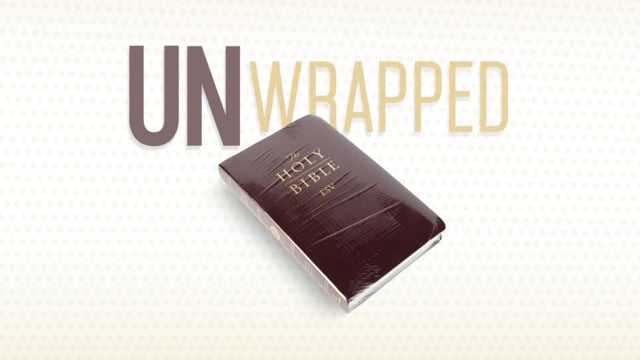|
Meghan Good's newest book The Bible Unwrapped comes out October 9, 2018!
The book is well-written, actually surprisingly. It's hard to tell the author has a strong background in theology, not because of the content, but because the writing style is so modern with contemporary colloquialisms. She really knows how to communicate with the "regular Joe." I actually agreed to read this book because the foreword was written by a false teacher, Gregory Boyd, so yes, I went in with a bit of bias, but I really did |
want to give this book a chance because of its purpose - get people to read the Bible.
The target audience of the book is for people who've grown up in church but doesn't really care about the Bible. Why should I read it? How should I read it? What is the Bible really? After too many pages, Meghan Good starts off by saying that the "Bible tells the story of a series of encounters between God and humanity." It's a "story of real life - raw and complicated" of what happened, and what can happen when God shows up.
I like the casual tone of the book. It contains no theological jargon, but theological topics like Inspiration, Inscription, Authority, or Canon are described in non-academic terms, so any average Joe can understand. There is no lesson on hermeneutics. The purpose of this book is to show the purpose of the Bible, and how to approach it, even before opening its pages.
What's annoying about this book is that after every few chapters, there's a "Story time" section. It's a mini-sermon based on a passage of Scripture. I think its purpose is to show the reader that the Bible is interesting and relevant! Its assumption is that the reader has never heard a good sermon at church, so here's a snippet for you so you can see that the Bible actually has a message for you. Yeah, completely unnecessary in the flow of this book.
Although I started reading this book with prejudice (because of the heretic writing the foreword), I'm happy to report that this book is legit and theologically sound. The only hint of liberalism is found in the last few chapters where she indicates that orthodoxy is a long process and we can "never" be sure of any theological conclusion that we have today. Her main intent is found here: "Our general level of rightness is far less important than our responsiveness to correction." She even implies that God changes based on his relationship with us, at least in our perspective, but that practically changes our theology, declaring, "An idol is not necessarily a false image of God...[but] also a true idea that is frozen, absolutized." That's liberal theology right there.
My biggest concern or regret is that the target audience for this book doesn't really read Christian books, much less the Bible. But maybe people like me can help them by walking through this book with them. But come on - someone willing to read a couple hundred pages of a Christian book is usually someone already reading the Bible, at least a little.
I would like to thank Herald Press for an advance copy of this book:
The target audience of the book is for people who've grown up in church but doesn't really care about the Bible. Why should I read it? How should I read it? What is the Bible really? After too many pages, Meghan Good starts off by saying that the "Bible tells the story of a series of encounters between God and humanity." It's a "story of real life - raw and complicated" of what happened, and what can happen when God shows up.
I like the casual tone of the book. It contains no theological jargon, but theological topics like Inspiration, Inscription, Authority, or Canon are described in non-academic terms, so any average Joe can understand. There is no lesson on hermeneutics. The purpose of this book is to show the purpose of the Bible, and how to approach it, even before opening its pages.
What's annoying about this book is that after every few chapters, there's a "Story time" section. It's a mini-sermon based on a passage of Scripture. I think its purpose is to show the reader that the Bible is interesting and relevant! Its assumption is that the reader has never heard a good sermon at church, so here's a snippet for you so you can see that the Bible actually has a message for you. Yeah, completely unnecessary in the flow of this book.
Although I started reading this book with prejudice (because of the heretic writing the foreword), I'm happy to report that this book is legit and theologically sound. The only hint of liberalism is found in the last few chapters where she indicates that orthodoxy is a long process and we can "never" be sure of any theological conclusion that we have today. Her main intent is found here: "Our general level of rightness is far less important than our responsiveness to correction." She even implies that God changes based on his relationship with us, at least in our perspective, but that practically changes our theology, declaring, "An idol is not necessarily a false image of God...[but] also a true idea that is frozen, absolutized." That's liberal theology right there.
My biggest concern or regret is that the target audience for this book doesn't really read Christian books, much less the Bible. But maybe people like me can help them by walking through this book with them. But come on - someone willing to read a couple hundred pages of a Christian book is usually someone already reading the Bible, at least a little.
I would like to thank Herald Press for an advance copy of this book:



 RSS Feed
RSS Feed
